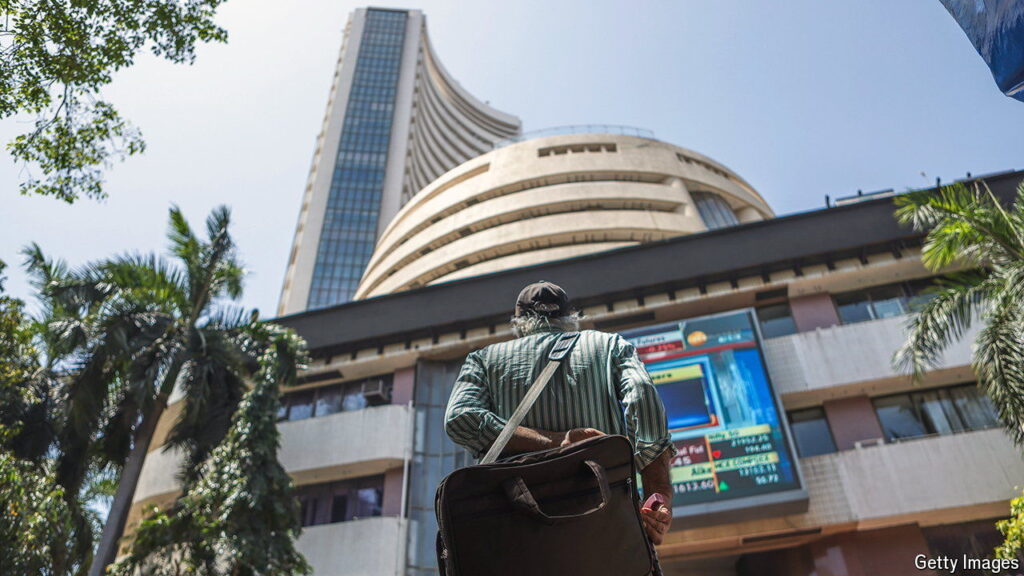India’s economy is experiencing rapid growth, with cities like Bangalore and Mumbai attracting the attention of global financial leaders. Narendra Modi, the country’s prime minister, has been highlighting India’s appeal during his election campaign. Despite this positive outlook, there seems to be a disparity when it comes to foreign investment in the country. In April, foreign investors sold off $1 billion worth of Indian shares, followed by another $4.2 billion in May. While this may seem like a small fraction compared to the total foreign investment in Indian shares, which amounts to around $900 billion, it is significant considering the overall optimism surrounding the Indian economy. This has resulted in the share of the Indian stock market held by foreigners dropping to just 18%, the lowest in twelve years.
The question that arises is why foreign investors are turning away from India, despite its growing economy and the government’s efforts to attract investment. One possible explanation for this disparity could be the global economic uncertainty caused by events such as the trade war between the United States and China. Investors may be concerned about the potential impact of these events on emerging markets like India, leading them to withdraw their investments. Additionally, political stability and policy predictability play a crucial role in attracting foreign investment. Recent geopolitical tensions, such as the conflict with Pakistan over Kashmir, could be making investors nervous about the country’s future direction.
Another factor that may be contributing to the decline in foreign investment is the performance of the Indian stock market itself. While the market has seen significant growth in recent years, there are concerns about overvaluation and volatile fluctuations. Foreign investors may be taking a cautious approach and choosing to reallocate their investments to more stable markets. Additionally, the lack of structural reforms and regulatory changes in India could be seen as a deterrent to foreign investors looking for a transparent and efficient business environment.
It is also important to consider the impact of domestic factors on foreign investment in India. The recent liquidity crisis in the non-banking financial sector and the slowdown in consumer demand have raised concerns about the health of the Indian economy. Foreign investors may be wary of these challenges and how they could affect their investments in the country. Moreover, the upcoming general elections in India could be adding to the uncertainty, as investors wait to see the outcome and its implications for the economy and policies.
In conclusion, the disparity between India’s economic growth and foreign investment highlights the complex and multifaceted nature of global financial markets. While India continues to be an attractive destination for investment, there are a variety of factors at play that could be influencing foreign investors’ decisions to pull back from the market. Addressing these challenges will require a coordinated effort from the government, regulators, and market participants to ensure that India remains a competitive and attractive investment destination in the long term.












